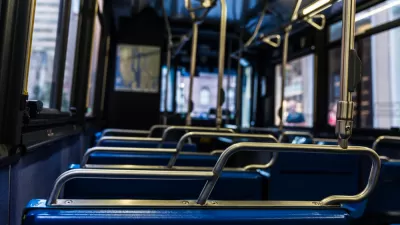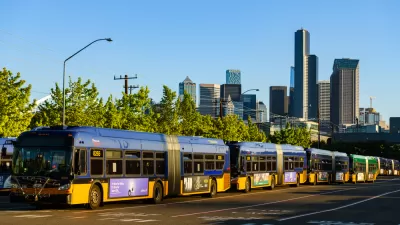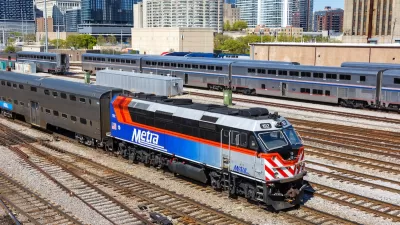After dramatic losses of riders and operators during the pandemic, transit agencies around the country are supplementing operational costs with federal relief dollars.

Transit agencies nationwide are taking in less farebox revenue, with agencies recovering, on average, just 12.8 cents for every dollar they spent on operations in 2021, down from 32.3 cents in 2019.
According to an article in The Center Square by Elyse Apel, Tom Gantert, and Brett Rowland, “Once the pandemic hit, transit operational costs increased while passengers abandoned public transportation for various reasons – including fear of COVID-19, working from home and having some transportation shut down.” Many transit agencies also eliminated fares in an effort to assist low-income riders and encourage more people to use public transportation.
The federal government allocated $71.7 billion to transit in four Covid-19 relief packages. This was a significant shift from pre-pandemic years: in 2019, federal funding made up 7.1 percent of transit operating expenses. In 2021, federal dollars funded 36.2 percent of operations. “The National Transit Authority stated 852 transit agencies across the U.S. spent $13.1 billion in federal pandemic relief funds mostly on operational expenses in 2021, a 95% increase from the previous year.”
FULL STORY: As transit fares plummet, federal money increases 95%

Alabama: Trump Terminates Settlements for Black Communities Harmed By Raw Sewage
Trump deemed the landmark civil rights agreement “illegal DEI and environmental justice policy.”

Planetizen Federal Action Tracker
A weekly monitor of how Trump’s orders and actions are impacting planners and planning in America.

Why Should We Subsidize Public Transportation?
Many public transit agencies face financial stress due to rising costs, declining fare revenue, and declining subsidies. Transit advocates must provide a strong business case for increasing public transit funding.

Understanding Road Diets
An explainer from Momentum highlights the advantages of reducing vehicle lanes in favor of more bike, transit, and pedestrian infrastructure.

New California Law Regulates Warehouse Pollution
A new law tightens building and emissions regulations for large distribution warehouses to mitigate air pollution and traffic in surrounding communities.

Phoenix Announces Opening Date for Light Rail Extension
The South Central extension will connect South Phoenix to downtown and other major hubs starting on June 7.
Urban Design for Planners 1: Software Tools
This six-course series explores essential urban design concepts using open source software and equips planners with the tools they need to participate fully in the urban design process.
Planning for Universal Design
Learn the tools for implementing Universal Design in planning regulations.
Caltrans
Smith Gee Studio
Institute for Housing and Urban Development Studies (IHS)
City of Grandview
Harvard GSD Executive Education
Toledo-Lucas County Plan Commissions
Salt Lake City
NYU Wagner Graduate School of Public Service





























